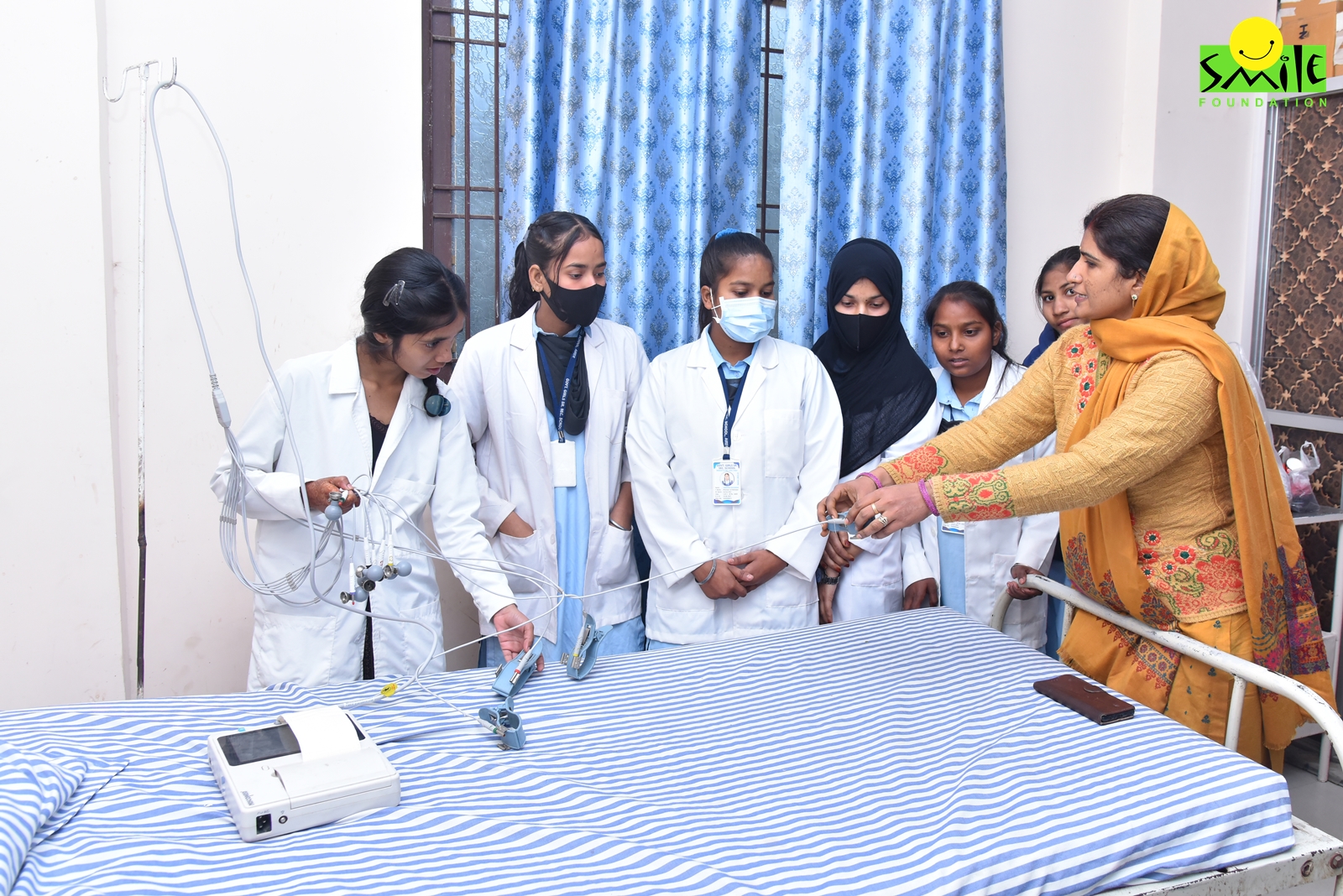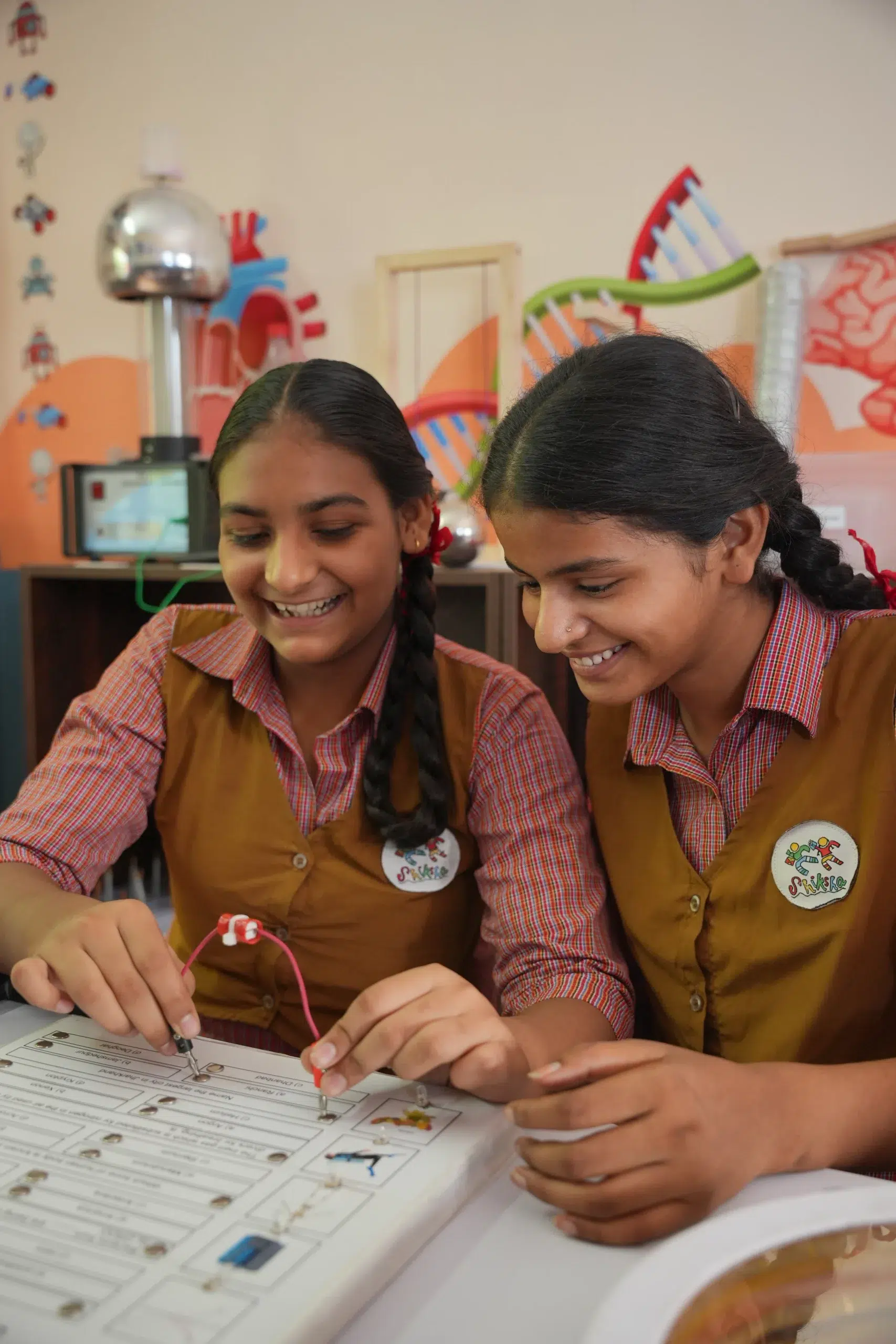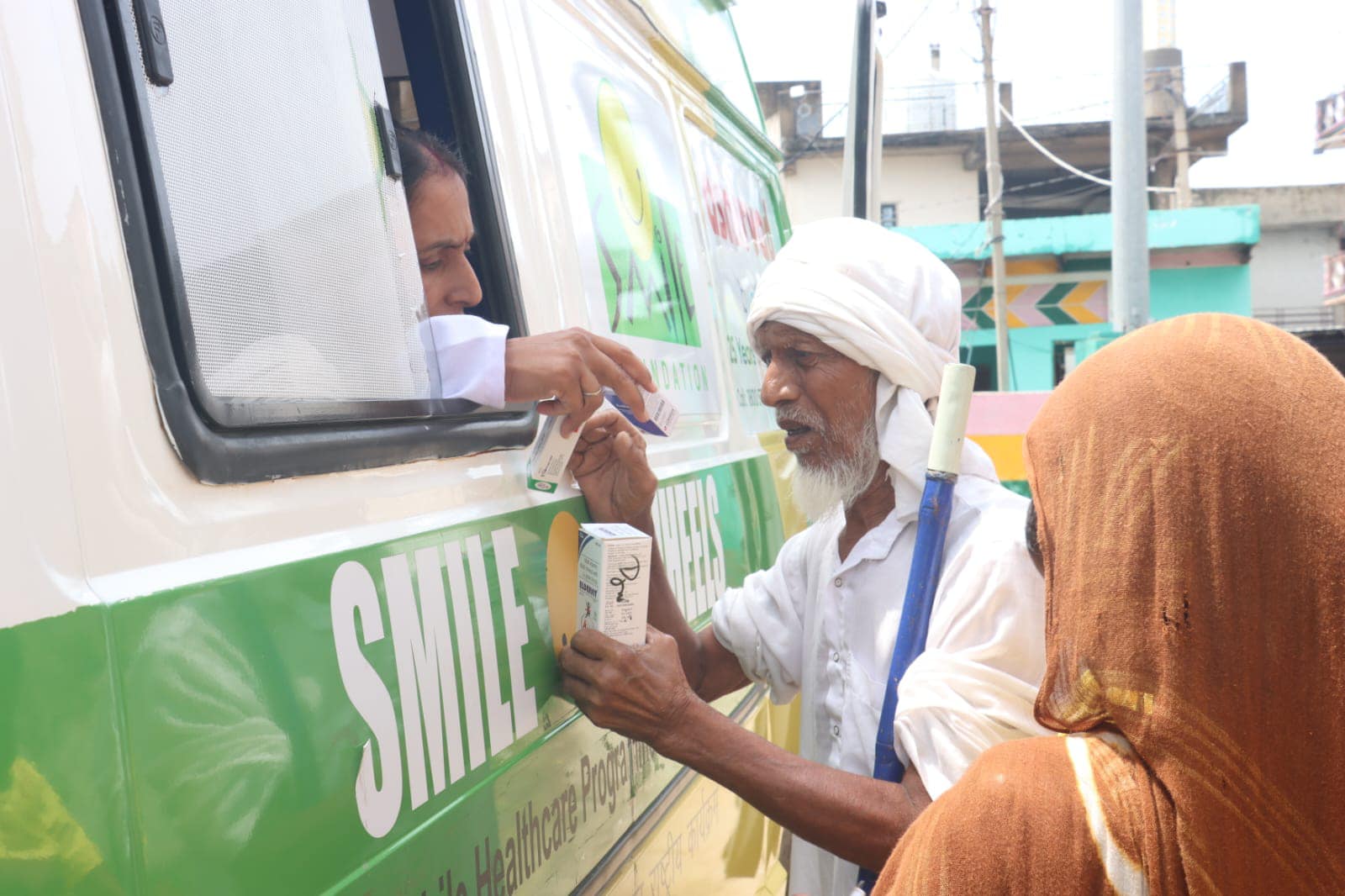As the monsoons arrive in India, rural India sees a wave of change with a sigh of relief for a better harvest. Along with them, the FMCG companies in India also see the scaling up of their sales in rural India, as the opportunity of increased continuous rural wages are on the horizon.
But the question is, should rural India’s development only depend on how the monsoons treat them? Should FMCG companies in India prioritise solely on sales, or can they leverage their Corporate Social Responsibility (CSR) programmes to effect substantial improvements in the lives of over 9 million individuals residing in rural areas?
India’s FMCG Industry – A pillar of support
India houses some of the most renowned FMCG brands of the globe. It is the fourth-largest industry in India and one of the highest contributors to the nation’s GDP. Through this industry, over 3 million individuals and their families are getting their bread and butter. And with steady growth each year, the FMCG industry is expected to become an industry worth 615 billion dollars by 2027.
Thus, looking at the promising future of the FMCG industry and the opportunities it holds for the development of rural India, let’s understand how the FMCG industry can channel its Corporate Social Responsibility programmes, to boost the underserved communities living in the rural and remote corners of India.
Before delving into how FMCG companies can utilise CSR initiatives to empower and drive rural development in India, it is important to grasp the landscape and the specific challenges confronting underserved communities especially the needs of underserved children, aspiring women entrepreneurs and youth in rural India.
Loop of wage stagnation in rural India
Many rural areas face stagnant wages, where the growth in wages has not kept pace with inflation or the rising cost of living. This situation often leads to economic hardship for rural households, impacting their ability to improve their standard of living, access essential services and invest in education and healthcare.
It has been observed that rural inflation has been higher than urban inflation for the past 11 months until May 2024, according to the Ministry of Statistics and Programme Implementation (MoSPI).
In May, it reached 5.3%, which was 110 basis points more than urban inflation. Since rural households spend more on food, food and beverages make up more than half (54.18%) of their expenses, whereas in urban areas, it is 36.29%. Experts believe that if the wage disparities continue then invariably it shall affect FMCG sales, however, the dependent variable this year is the monsoon and its positive result in the rural areas of India.
Challenges faced by underserved children
With the advancement of technology, the education sector has evolved and advanced itself to newer heights. However, the benefits of such advancement in the education sector have still not reached many underserved children.
The most recent Annual Status of Education Report (ASER) reveals a concerning statistic: a significant majority of 14- to 18-year-old children in rural India face challenges with fundamental academic skills.
Specifically, more than half of these adolescents still struggle to perform basic tasks such as solving three-digit division problems, determining time, and executing elementary calculations—skills that are typically acquired by students in Classes 3-4.
Challenges faced by underserved youth in India
Did you know that India has the 5th largest population of youth in the world? This magnanimous ocean of young people is a reservoir of talent, that is still untapped to the fullest extent in our country.
Issues like dropping out of school due to their family’s financial constraints or being pushed into labour work to provide for their families are often the pre-decided fates of the rural youth in India. Furthermore, poor educational infrastructure also hampers their interest towards garnering education or learning vocational skills, which invariably results in their holistic development and future opportunities to carve a stable financial life.
Challenges faced by women entrepreneurs
As “Vocal for Local” echoes in the air, the number of entrepreneurs in India has grown significantly. With over 1 lac startups in India, the country has certainly become a global powerhouse as it stands being the third largest startup ecosystem after the US and China.
However, as much as the urban entrepreneurs have grown in a short period, the rural businesses- Grampreneurs, especially women entrepreneurs are still finding it difficult to sustain themselves.
With less capital, resources and training coupled with the complex problems of managing and filing business taxes, lack of knowledge regarding associated costs and knowledge of GST, these willed rural women entrepreneurs are facing the biggest test of their time- to become part of India’s mainstream entrepreneurial ecosystem.
Even with the increased usage of digital platforms and transactions across India, many rural entrepreneurs are yet to leverage the benefits of it. Only 60% of Gramprenerus use digital payment methods and 26% use e-Commerce sites for their sales. Furthermore, women entrepreneurs in rural India face significant challenges in setting up their businesses as compared to men. It has been observed that only 52% of women can access financial credit.
Personal obstructions like their family’s disapproval and banks refusing them loans to kickstart their businesses are often the first hurdle that deviates many rural women entrepreneurs from kickstarting their entrepreneurial journey.
FMCG Corporate Social Responsibility in India- A new way?
The Ben & Jerry’s Foundation, the charitable branch of the ice cream company, provides financial support to grassroots organisations focusing on social justice, environmental conservation, and community development. Established in 1985, the foundation has contributed more than $30 million to date.
Taking inspiration from such key players of the global FMCG industry, the Indian FMCG industry can also mould their CSR partnerships towards the rural development of India, while aligning them to the UN SDGs and the government schemes for rural development in India.
With the commitment towards holistic development, the FMCG industry can steer their CSR partnerships towards developing the rural education sector, employability, health infrastructure and empowerment of local businesses so that many underprivileged communities can get the opportunity to develop holistically.
FMCG Corporate Social Responsibility in India for underserved students
As the Indian education sector heads towards a bigger and brighter future with STEM education, we need to ensure that children of underserved communities in India also get the opportunity to learn and thrive with the benefits of STEM education.
For this, the FMCG industry can invest their CSR fund for school buildings in rural and remote corners of the country, and support the school infrastructure with solar power, while also investing in developing equipped STEM labs for the underprivileged children.
It should be understood that underserved children of India require a little more hand-holding than the children of the urban and developed communities when it comes to learning, therefore, support by providing technical books, digitised classrooms and computers can help these children learn and understand quality education, that enhances their cognitive development, as well as helps them to build a mindset that pushes them to come out of the cycles of economic stagnation.
By partnering with Smile Foundation’s Mission Education programme , the FMCG industry can reach over 1 Lac children in 27 states every year. With a key focus on-
- FLN & Grade-Specific Learning Outcomes
- STEM Education
- Digital Learning Environment
- Holistic Development of Students
- Need-based Teacher’s training
- Parent & Community Engagement
- Scholarships for Girl Child Education
The Mission Education programme aligned with the NEP 2020 policy and UN SDG 4, aims at ensuring quality education is accessible to every underserved child in India. The aim is to ensure that no child stays away from school and can build a life for themselves and their families that is sustainable for years to come.
FMCG CSR activities in India for skill development in rural areas
Focused on imparting vocational training to underserved youth in sectors like retail, hospitality, and healthcare, STeP equips young girls and boys with market-relevant skills and enhances their employability. The holistic approach of the initiative integrates soft skills training, personality development, and financial literacy, ensuring comprehensive growth.
By partnering with Smile Foundation, FMCG companies can strategically align their Corporate Social Responsibility efforts with STeP’s curriculum, directly impacting communities, this collaboration not only shall address immediate skill gaps but also fosters long-term sustainability by creating pathways to economic independence for youth.
Through structured partnerships, FMCG firms can leverage our expertise and network to measure and amplify the social impact of their investments, contributing significantly to underserved youth development in India’s rural and urban areas.
Rural Women Empowerment needs FMCG industry support
Steering women empowerment in India, the FMCG industry’s CSR partnerships can be a powerful force towards making rural women of India financially independent by supporting them with vocational training, financial literacy and entrepreneurship support.
Understanding the challenges faced by the local rural women of India, Smile Foundation’s Swabhiman programme has been working closely on encouraging and empowering rural women by introducing them to the world of entrepreneurship.
Each year over 1.5 lac women are given health and nutrition benefits, including skill development and entrepreneurial management training so that they can holistically develop themselves, their families and their communities. Swabhiman closely works on-
- Capacity building to start Micro Enterprises
- Workshops on E-commerce and digital marketing
- Technical capacity building
- Enrolment in government schemes for livelihood opportunities
- Setting up of model Micro Enterprises
FMCG companies can play a pivotal role in empowering women in rural India by partnering their strategic CSR initiatives with programmes like Swabhiman.
With a focus on financial inclusion and empowerment of rural women,
the FMCG CSR initiatives can partner with Smile Foundation to empower rural women through-
- Skill Development Initiatives- By setting up vocational training centres focused on skills relevant to their industry, such as packaging, quality control, or distribution. These centres can impart training to women in rural areas, equipping them with marketable skills that enhance their employability and income.
- Entrepreneurship Development- Supporting women entrepreneurs by providing micro-financing, mentorship and access to markets can be a transformative CSR activity.
- Health and Hygiene Initiatives- Many FMCG products cater to health and hygiene needs. Companies can promote awareness and provide access to affordable products such as sanitary pads, soaps, and healthcare supplements. Additionally, organising health camps and workshops on nutrition and maternal health can significantly benefit rural women.
- Financial Inclusion- Facilitating financial literacy programs and promoting savings and banking among women can empower them economically. FMCG companies can collaborate with banks to establish financial literacy camps and facilitate easy access to banking services in rural areas.
- Digital Literacy- In today’s digital age, imparting digital literacy skills is crucial. FMCG companies can establish digital literacy centres or mobile training units to teach basic computer skills, internet usage, and e-commerce, enabling women to access broader markets and information.
As a significant industry both in India and globally, FMCG industry holds a unique position closely tied to its consumers. Leveraging its substantial influence, the FMCG sector’s Corporate Social Responsibility in India can catalyse transformative development in rural India.
The good days!
By focusing on initiatives such as
- enhancing quality education for underserved children,
- skill development for rural youth
- and empowering rural women
FMCG companies can create a dynamic ecosystem.
This approach shall nurture holistic development among underserved children, prepare youth for the workforce and also empower women, their core customer base, fostering financial independence and societal equality.
Considering the profound potential impact of FMCG’s CSR programmes on rural India’s development, it is imperative to invest in the inclusivity of the nation. After all, acche din (good days) must each every individual of India.









